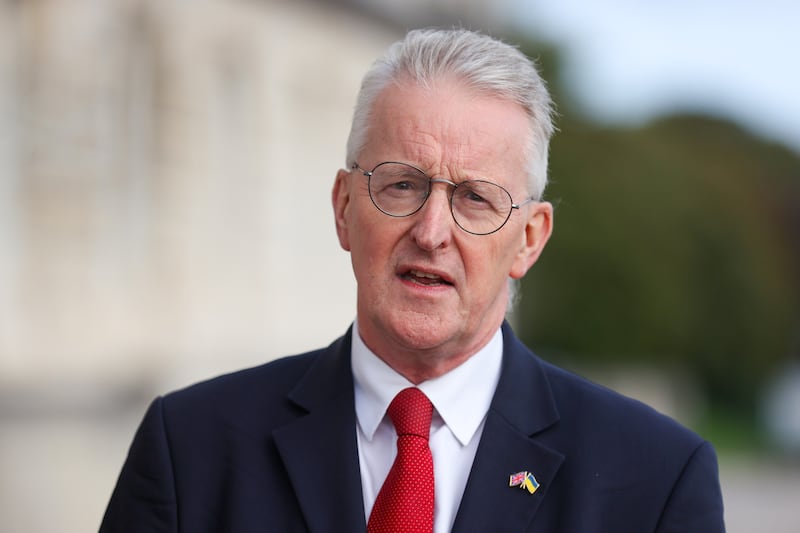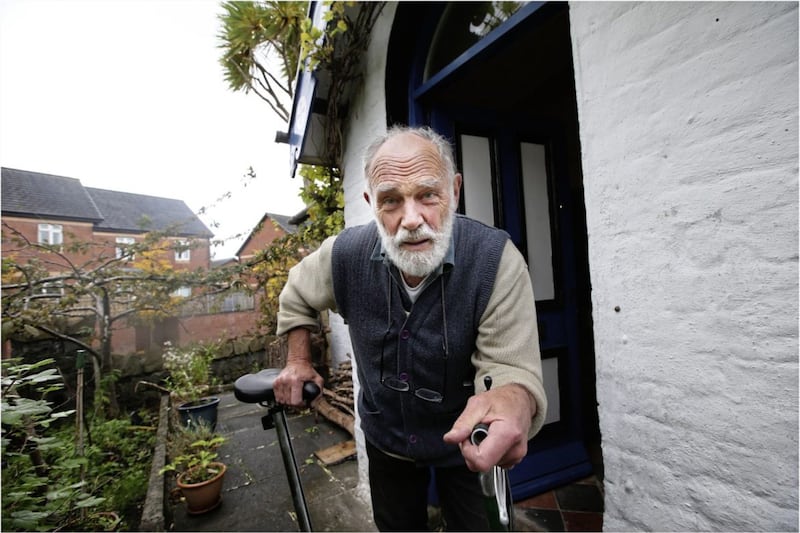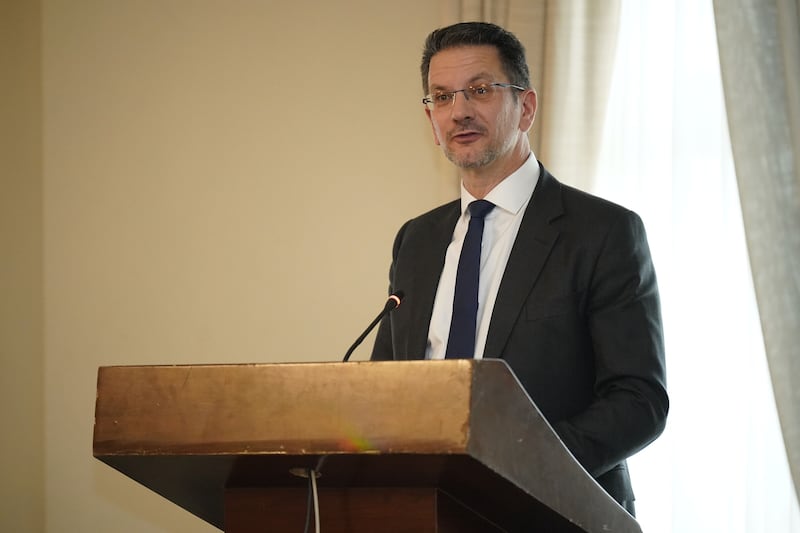In March 2023, the British Prime Minister, Rishi Sunak, declared publicly that he would fight "very hard every day" to protect the "precious" Union.
A month later, the British secretary of state for NI, Chris Heaton-Harris, stated he would "make no apologies for being proud of Northern Ireland's place in the Union and for wanting it to continue".
In August 2022, Sunak's predecessor, Liz Truss, proclaimed at a party event in Belfast that she would "protect our precious United Kingdom," declaring that she wanted "our family to stay together and never split up".
In October 2019, her predecessor, Boris Johnson, visited the north to speak at a DUP event at which he boomed that Northern Ireland was part of the Union with Great Britain "and always will be". He also took time to highlight the 'precious' state of that Union.
None of these declarations made from those holding the highest offices in Britain prompted a response from the leadership of Irish nationalism, who collectively understood that it was logical for British politicians to express a desire to maintain existing constitutional arrangements.
Of course, the precious Union was built on the entirely shaky and undemocratic foundation that the desires and perspectives of those in support of said Union were somehow superior to the opinions of the people with whom they shared this land.
Hence it should not come as any real surprise that the very same Chris Heaton-Harris would criticise Leo Varadkar earlier this month following the Taoiseach's measured expression of support for the vision of Irish unity being realised within a short to medium time frame.
Indeed, the Tory politician was merely acting in a manner consistent with how many in the Dublin political and media establishment have responded to public expressions of support for a border poll and a step change in preparations for unity over the past decade.
Leo Varadkar's initial comment was welcome, but of more significance was his subsequent utterances making clear that, as Taoiseach, he regards it as both responsible and appropriate to be declaring support for unity as a constitutional outcome consistent with the aspirations articulated in the Irish Constitution.
In 2017, Leo Varadkar stated in a BBC interview that he "wouldn't like us to get to the point whereby we are changing the constitutional position here in Northern Ireland on a 50 per cent plus one basis".
At that time, Varadkar was rightly excoriated by nationalists (and democrats) for foolishly indulging the lingering entitlement mindset within unionism perpetuated by a political culture treating expressions of support for a precious Union as being acceptable whilst deeming as controversial, unhelpful and even divisive public statements in support of Irish unity.
Two things have happened in the intervening years which have undoubtedly shaped the Taoiseach's changing attitude on the subject.
Firstly, the bitter experience of engaging with an entirely cynical and duplicitous British government throughout the Brexit years will have provided Varadkar and his Fine Gael colleagues with a glimpse of the northern nationalist existence.
Secondly, the inexorable rise of Sinn Féin across the island has rendered it a necessity for the ever reluctant Irish political establishment to begin engaging in a meaningful manner in the Irish unity debate.
As preparations for unity step up a gear in the months and years ahead, we should expect the British government, unionist politicians and their cheerleaders within the media to endeavour to close down the entirely legitimate and appropriate campaign for constitutional change by claiming unity advocates are threatening stability, harming community relations and being reckless.
The truth is, of course, very different.
Given all that has come to pass over the past generation, it is a moral as well as political imperative for meaningful and comprehensive plans and preparations to be developed now to ensure that, when the inevitable border poll is called, the Irish government is ready and well positioned to lead the campaign to help build a truly precious new dispensation.








